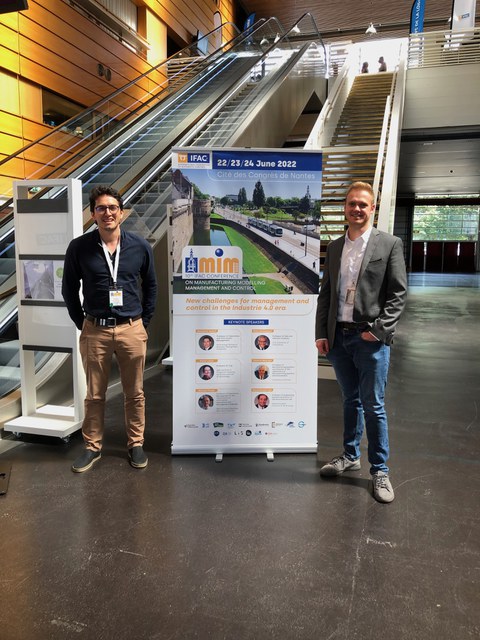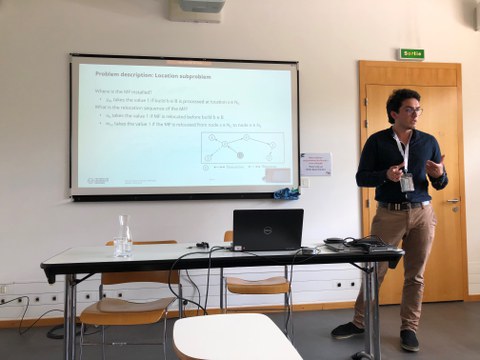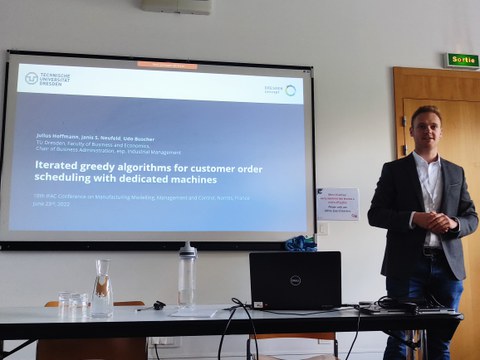Aug 05, 2022
Conference MIM 2022 in Nantes
The 10th "IFAC Conference on Manufacturing Modelling, Management, and Control" (MIM 2022) was held in Nantes (FR) from June 22 to 24. At the conference, organized by IMT Atlantique, researchers exchanged ideas on current topics in the fields of industrial engineering, supply chain management, operations research, and other related disciplines. In addition to the presentation of 545 conference papers, six keynotes provided exciting insights into current industry trends.
At the conference, Eduardo Alarcon and Julius Hoffmann presented two papers from our chair. Eduardo Alarcon presented a paper on "Customer Order Scheduling in a Mobile 3D Printing Factory", while Julius Hoffmann addressed the topic "Iterated Greedy Algorithms for Customer Order Scheduling with Dedicated Machines".
Customer Order Scheduling in a Mobile 3D Printing Factory
The problem addressed in this article is motivated by the development of small-scale, mobile factories equipped with 3D printing technologies. As they are embedded in standard containers, it is possible to move them from one location to another to support on-site and demand-driven production. To approach this problem, we developed a mixed-integer program model which defines the location of the mobile factory and assigns customer orders to each location and build, with the objective of minimizing relocation, transport, and tardiness costs. In addition, we proposed a heuristic method which, in an iterative process, builds a feasible solution and then seeks to improve it based on certain predefined rules. Early computational tests show that our algorithm achieves competitive results and can lay the groundwork for more sophisticated algorithms and problems.
Iterated Greedy Algorithms for Customer Order Scheduling with Dedicated Machines
The customer order scheduling problem has received much attention recently due to its relevance to real world applications. In this study, the minimization of the total completion time of customer orders is studied in a dedicated machine environment, i.e. each order consists of one job on each machine. Two iterated greedy algorithms are presented that make use of problem properties and apply a new local search as well as a new construction function. In a computational experiment, both algorithms outperform two state-of-the-art approaches and prove their suitability to solve the customer order scheduling problem with dedicated machines.



